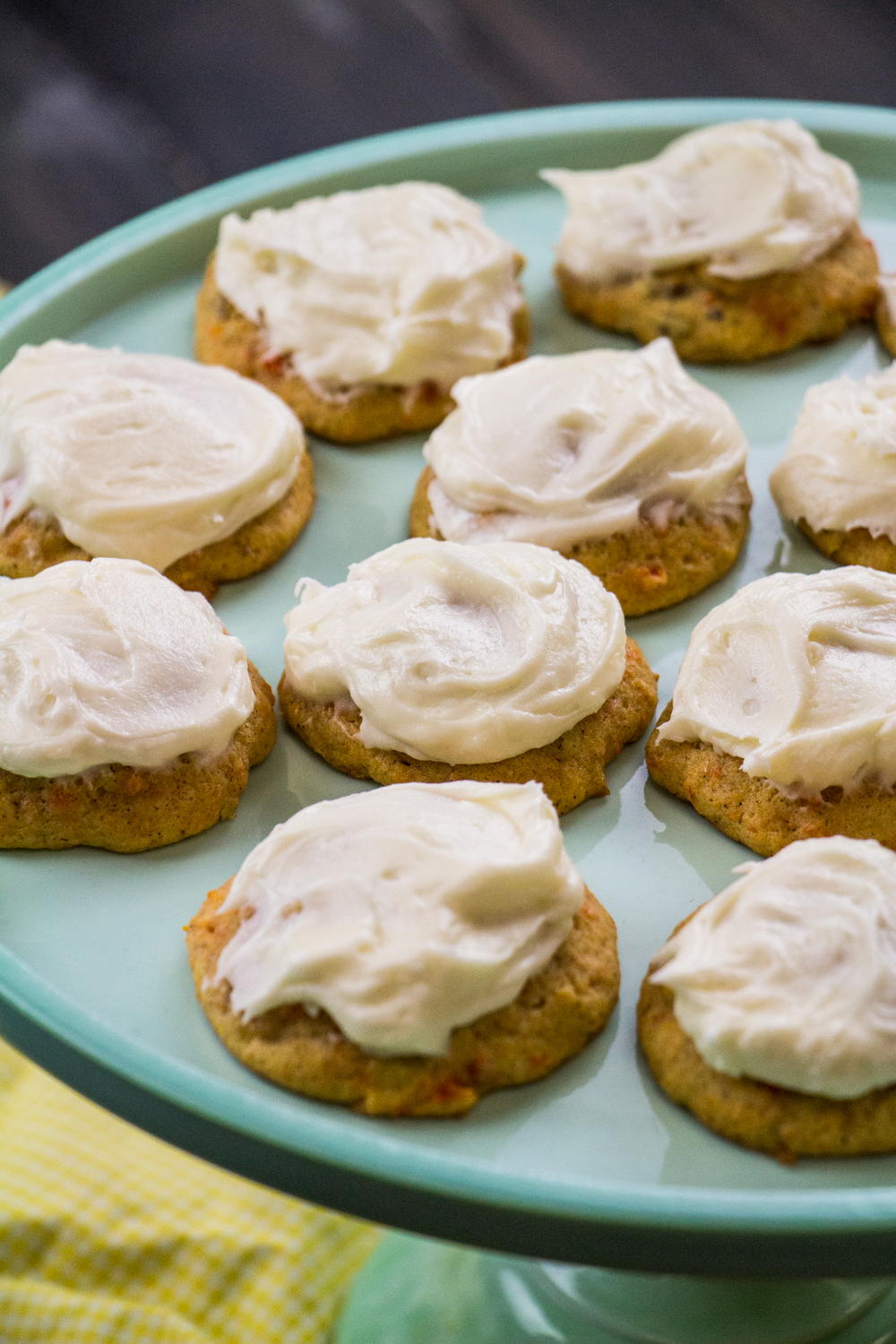WWII Carrot cookies
This WW2 Carrot Cookies recipe will impress your grandmother! It's kind of like a mix of muffins and cookies with a dash of cake - what more could you want? The cream cheese frosting on top gives them a great dessert quality, but if you leave off the frosting, these cookies could easily pass for a decently healthy breakfast treat. Makes 36 cookies.
|
INGREDIENTS:2 cups carrots, peeled and sliced (1 cup after cooking)
|
DIRECTIONS:
- In a small saucepan cook the carrots with water until tender. Drain and mash.
- Heat oven to 375 F. Line baking sheets with parchment paper.
- In the bowl of a stand mixer cream the butter with the sugars until light and fluffy.
- Add the egg and vanilla and beat until combined.
- On low speed, add the mashed carrots.
- In a medium bowl whisk the flour, baking powder, salt, and cinnamon.
- On low speed add to the butter/sugar mixture.
- Stir in the candied ginger and chopped walnuts.
- Using a 2-tablespoon sized cookie scoop drop the cookie batter onto the baking sheet leaving 2 inches between the cookies.
- Bake for 11-12 minutes until firm, they will not be brown. Let cookies cool on the baking sheet for a few minutes then carefully transfer to a cooling rack.
- In the bowl of a stand mixer using a paddle attachment whip the cream cheese and butter until fluffy. Add in the vanilla.
- Slowly add the confectioners’ sugar and mix until fully incorporated and frosting is light and fluffy.
- Spread the frosting on the cookies.
Why the carrot craze in WW2?
These cookies are inspired by recipes that were popular in Britain during World War II, but you might be wondering what the connection is! Carrots were very popular in baked goods because they were a good substitute for sugar, which was rationed during the war. Recipes for carrot cookies, carrot cakes, and even carrot flan were developed, and the best recipes are still enjoyed today.
The other interesting thing about carrots in World War II is that they were used in propaganda from the British Ministry of Intelligence. By 1939, British pilots in the Royal Air Force were using new radar technology (Airborne Interception Radar) to target and shoot down enemy planes. Because this was a new technology, and they didn't want the Germans to know about it, the Ministry invented a reason why their pilots had become so adept at shooting down planes. They said that British pilots ate lots of carrots to improve their night vision!
There's not a lot of evidence that the German army believed this tall tale, but the idea that carrots improve your vision has stuck around to this day. It is true that they're good for your eyes... but they won't actually improve your night vision.
These cookies are inspired by recipes that were popular in Britain during World War II, but you might be wondering what the connection is! Carrots were very popular in baked goods because they were a good substitute for sugar, which was rationed during the war. Recipes for carrot cookies, carrot cakes, and even carrot flan were developed, and the best recipes are still enjoyed today.
The other interesting thing about carrots in World War II is that they were used in propaganda from the British Ministry of Intelligence. By 1939, British pilots in the Royal Air Force were using new radar technology (Airborne Interception Radar) to target and shoot down enemy planes. Because this was a new technology, and they didn't want the Germans to know about it, the Ministry invented a reason why their pilots had become so adept at shooting down planes. They said that British pilots ate lots of carrots to improve their night vision!
There's not a lot of evidence that the German army believed this tall tale, but the idea that carrots improve your vision has stuck around to this day. It is true that they're good for your eyes... but they won't actually improve your night vision.

